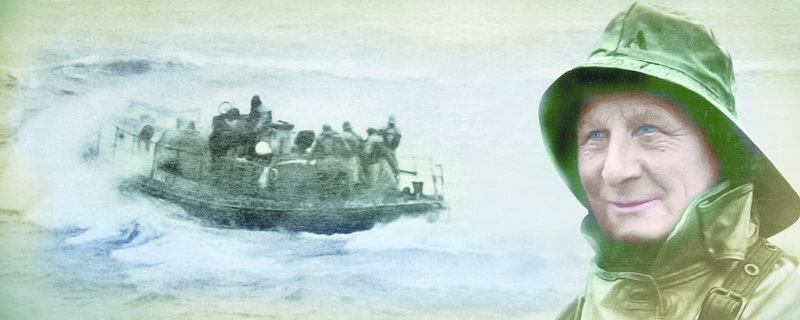HEADING FOR THE HILLS
Henry, English hero for Catalans
Those fleeing Franco aboard the merchant ship Cantabria must have thought they had finally escaped the horrors of the civil war as they steamed past Norfolk, bound for Leningrad
Come to England with me for a few moments. Let's talk of heroes.
You might think that the setting of my wild English childhood - of a one sock up, one down, scruffy, bare-kneed boy roaming along the dangerous coast of flat Norfolk - is a world away from Catalonia. Not entirely so.
I remain scruffy (constant) and bare-kneed (frequent), but that is not what I mean.
That great bulbous curve of the Eastern coast of the island where I was born, butting out like arse into the grey North Sea towards the Netherlands, is open to the clean, bitter Arctic wind that will cut you in half. The place has a rare beauty, a goodness, and is, understandably, in my heart.
The same is true for some Catalans, and I am not just referring to those who I know now live there.
The boyhood bewilderments for me were many, not least the countless wrecks of ships littering the shallows, and of the stories they told. And then there were the local heroes, the volunteer lifeboat men, who went out into violent storms to rescue souls. One such was the late Henry Blogg, coxswain (captain) of the Cromer lifeboat who, 75 years ago, went to the aid of Catalan refugees.
Those fleeing Franco aboard the merchant ship Cantabria must have thought they had finally escaped the horrors of the civil war as they steamed past Norfolk, bound for Leningrad. But they were being shadowed by the Nadir, a Nationalist armed merchant ship, and within sight of the Norfolk beach the Nadir opened fire.
With night falling shells and bullet rained down on the Cantabria, destroying her bridge and engine.
It was so close to shore that machine gun fire broke the windows of houses. The Cantabria was sinking and the captain Manuel Argüelles issued an SOS.
Into this Spanish war chaos Blogg and his lifeboat crew plunged to help those on the stricken ship. A trawler, the Pattersonian, also responded, the captain bravely putting his vessel between the Nadir and the Cantabria to give the lifeboat a chance to make a rescue attempt.
With fire raging on the ship and the Nadir's closing in many people had taken to the boats. Some were picked up by the Pattersonian but others, including two children, were taken by the Nadir.
Captain Argüelles, his wife and two children aged six and eight, were still aboard the sinking Cantabria. Blogg saved them, pulling away just seconds before the ship rolled and sank.
Last November Cromer commemorated the anniversary of the rescue and in so doing further honoured the great Henry Blogg and his crew. We must remember, too, those aboard the Pattersonian.
What happened within sight of my childhood home had been a shocking portent of what all of Europe was to about to face from Fascism, and perhaps provoked (one can only hope) some chilling reflection by the British parliament that had abjectly failed to stand up for democracy against brutal dictatorship in Spain.


